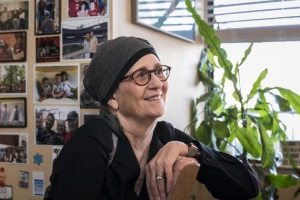
Novocure’s Optune TTF (tumor treating fields) – Growing international availability
Spain’s Ministry of Health has recently made Novocure’s Optune (Tumor Treating Fields) therapy available through the Spanish National Health system, for the treatment of adult patients with newly diagnosed glioblastoma. This adds Spain to a growing list of countries where TTF treatment is reimbursed. This highlights the growing inequity of treatment access between the UK and other developed countries.
A tale of two cities?
Imagine two patients, both diagnosed with glioblastoma multiforme (GBM) – the most aggressive form of brain cancer. Both are in their early forties, both have young families, both are reaching their maximum earning potential and have financial responsibilities, both face the devastating reality of a 14.6 month median survival. There is one thing that’s sets them apart. One lives in Madrid, the other in Manchester. The person living in Madrid will soon have access to Optune® through the Spanish national health system; the person in Manchester faces a different choice. They can pay just under £20,000 a month for private treatment or go without. This is what healthcare inequality looks like in the UK in 2025.
With Tumour Treating Fields clearly showing benefits to patients, it is frustrating that review by NICE of this treatment is being delayed. This is creating a divide between cancer care in the UK and other developed nations. For too long there have been too few treatment options for people with a brain tumour. We understand that some people may be able to access this treatment through private healthcare, or through a clinical trial, but this isn’t possible for most. Therefore we urge NICE and Novocure to progress the review process at pace so that this treatment is accessible and affordable to our NHS and people living with the devastating reality of a Glioblastoma diagnosis.
The evidence is robust and compelling
The pivotal EF-14 trial, a large, randomised phase 3 study, compared standard chemo-radiotherapy to chemo-radiotherapy plus Optune® in adults with newly diagnosed GBM. This showed an increase in median OS from 16 months to 20.9 months. Two-year survival increased from 31% to 43% and five-year survival from 5% to 13%. Longer wear time was associated with a greater improvement in survival. The only difference in side-effects was in skin irritation.
These aren’t marginal gains. This represents precious additional time with loved ones, a chance to see another birthday, another Christmas and build precious memories.
In summary you are looking at an average of an extra 12 weeks for both PFS and OS.
“These results are spectacular – a lot better and much more convincing than we ever would have dreamt of,” said Dr. Roger Stupp, M.D., EF-14 Principal Investigator. “A new standard of care for patients suffering from glioblastoma is born.”
Real world evidence too can’t be ignored. Over 25,000 people who have used TTFields have validated these trial results. The German TIGER study[1] with 710 participants showed comparable survival outcomes, while recent data[2] from the European Society of Medical Oncology (ESMO) in 2024 reinforced the message that people who use the device more consistently see greater survival benefits. An academic paper[3] published in May 2025 revealed an association between TTFields use and long-term survival benefit, consistent with pivotal trial findings. A more detailed exploration of the evidence can be found here.

The global landscape
Whilst people in the UK struggle with prohibitive costs, the international landscape tells a different story. TTFields is currently marketed in the United States, the European Union, Switzerland, Japan, Mainland China and Hong Kong (China). In addition it is specifically approved in Australia, Israel and in August, in Spain.
Equity of access – why it matters
It matters because it is a breakthrough treatment that can extend life by months and preserve quality of life. The UK stands alone among developed nations in denying public
access to this proven therapy. This matters because there is human cost involved; it is about the value our society puts on the lives of people living with brain cancer. It creates a two-tier healthcare system that fundamentally contradicts NHS founding principles.
This is the impact
- A perception that quality of life isn’t important for people living with brain cancer. TTFields offers life extension without devastating side effects.
- Socioeconomic discrimination – only the wealthy or those with certain private health insurance can access TTFields.
- Moral imperative – should ability to pay determine access to life preserving treatment?
- Cultural imperative – the arbitrary denial based on cost considerations undermines the ethos of evidence-based medicine, shared decision making and patient trust.
- NHS commitment to comprehensive care – does this only apply to traditional therapies?
- The clinical and economic value – a better quality of life, extended survival and reduced hospitalisations, less burden on the caregiver, preserved productivity as people maintain better functional status all add to the broader economic picture.
- Innovation and investment – a refusal to fund TTFields impacts on the perception as a leader in medical technological innovation.
The continued denial of access to TTFields in the UK represents a failure of our healthcare system to provide equitable, evidence-based care to all people regardless of their economic circumstances.
The parent in Madrid will begin TTFields knowing that their Government values their life. The parent in Manchester continues to wait, living with uncertainty, hoping for change that may not come in their lifetime, dependent on outmoded therapies that impact hugely on quality of life whilst not extending life.
Every person living with GBM deserves the same access to life-extending and life improving treatment as their international counterparts, regardless of their ability to pay. When facing life limiting diagnosis, hope shouldn’t a luxury that only the wealthy can afford.
END
[1] Bähr O, Tabatabai G, Fietkau R, Goldbrunner R, Glas M. QOLP-31. QUALITY OF LIFE OF PATIENTS WITH NEWLY DIAGNOSED GLIOBLASTOMA DURING TTFIELDS THERAPY IN ROUTINE CLINICAL CARE: FIRST RESULTS OF THE TIGER STUDY. Neuro Oncol. 2021 Nov 12;23(Suppl 6):vi189–90. doi: 10.1093/neuonc/noab196.751. PMCID: PMC8598727.
[2] 459P – Association of tumor treating fields device usage with survival in newly diagnosed GBM: A real-world analysis of patients in the US https://cslide.ctimeetingtech.com/esmo2024/attendee/confcal_2/presentation/list?r=pt%7E15
[3] Riegel DC, Bureau BL, Conlon P, Chavez G, Connelly JM. Long-term survival, patterns of progression, and patterns of use for patients with newly diagnosed glioblastoma treated with or without Tumor Treating Fields (TTFields) in a real-world setting. J Neurooncol. 2025 May;173(1):49-57. doi: 10.1007/s11060-025-04946-w. Epub 2025 Mar 31. PMID: 40163248; PMCID: PMC12040967.
Photos reproduced with permission from Novocure GmbH ©2022 Novocure GmbH – All rights reserved. Permission for global use was obtained from the patient.





